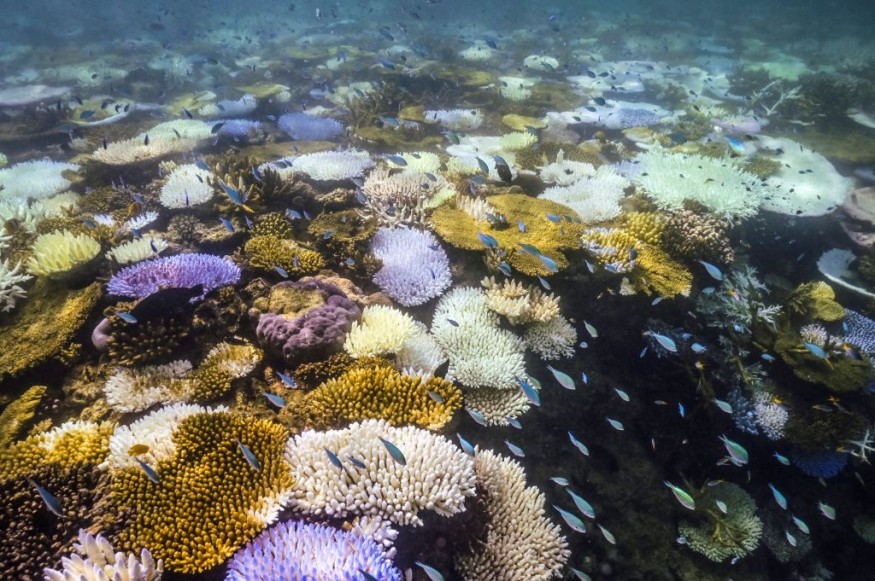The United Nations' cultural organization is pushing Australia to establish more aggressive climate goals for the Great Barrier Reef in order to maintain its designation as a World Heritage Site.

Great Barrier Reef Is Utmost Priority
UNESCO warned that Australia has to take urgent measures to protect the reef and make it the utmost priority of the country.
While the organization did not suggest that the reef be added to the list of endangered heritage sites, they requested that Australia provide an update on its conservation efforts by the beginning of next year.
They also expressed strong concern over the incompatibility of land clearing rates in catchments that feed into the reef, with the goals aimed at reducing the amount of nutrients and sediments that enter the reef.
The UNESCO strongly condemned the widespread coral bleaching catastrophe that occurred on the reef this summer and urged Australia to reveal the full extent of the coral destruction as soon as it was available.
"The current bleaching occurs as part of the fourth global mass bleaching, which is likely impacting at least 30% of the world heritage-listed coral reef properties, and the implications across the world heritage system will also need to be considered further," a UNESCO expert said.
The World Heritage Committee has threatened to list the largest coral system in the world as one of its "in danger" global heritage monuments, which has caused tensions between Australian authorities and UNESCO over the reef's future.
Such an action has been prevented by Australia's covert diplomacy and lobbying, and the Paris-based group has praised Anthony Albanese's Labour government's commitments.
Read Also : Great Barrier Reef: Deeper Regions Show Potential Resistance to Rising Ocean Temperatures
Wake-Up Call
The Australian Minister of Environment and Water, Tanya Plibersek, welcomes the decision of UNESCO and calls it a "huge win."
The federal government announced its plans to cut down greenhouse gas emissions by 43% by 2030, along with a list of reef conservation proposals and an allocation of $1.2 billion in funding.
The environment minister strongly mentioned that Australia has an obligation to preserve the reef and leave it intact for future generations.
"We are acting on climate change, improving local water quality, protecting our marine life, dealing with invasive species, and investing a record amount of money into reef programs," she said in a statement issued on Tuesday.
However, environmental groups said the decision by UNESCO should be a wake-up call to the Australian government.
The Climate Council called for a phase-out of fossil fuels and blasted Plibersek for giving UNESCO's warning a positive spin while pointing out the reef's frequent bleaching episodes.
"Every new coal and gas project adds harmful climate pollution into the atmosphere and further endangers the reef. The government must build upon their clean energy plans by also planning to phase out fossil fuels," Amanda McKenzie, chief executive of the Climate Council, said.
Groups like Greenpeace and the World Wide Fund for Nature also urged Canberra to prohibit new fossil fuel projects and significantly decrease emissions.
Located in the northeastern part of Australia, the Great Barrier Reef has the world's greatest collection of coral reefs.
The world's greatest collection of coral reefs can be found in Australia's northeastern Great Barrier Reef. There are fifteen hundred fish species, four thousand mollusk species, and four hundred types of coral on its expanse.
Also in the area are some endangered species like the big green turtle, dugong, or sea cow. The reef, which is well-known for its biodiversity, welcomes about two million tourists each year.
Related Article : Great Barrier Reef Corals Unlock Secrets of Earth's Rainfall History
© 2025 NatureWorldNews.com All rights reserved. Do not reproduce without permission.





